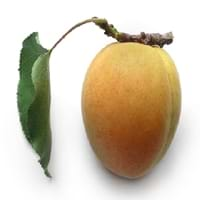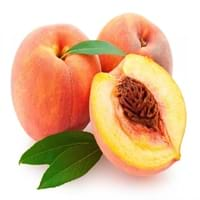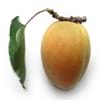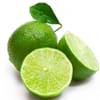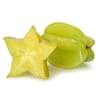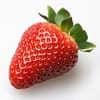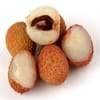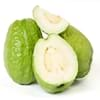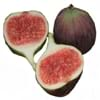Health Benefits
Asthma treatment, Cancer prevention, Controls blood pressure, Digestive aid, Heart care, Maintains hormonal balance, Regulation of heart rate, Skin cleansing, Skin rejuvenation
Cancer prevention, Heart care, Improves eye vision, Reduces stress, Regulation of heart rate
General Benefits
Boosts immune system, Controls blood pressure, Digestive aid, Eye care, Maintains healthy cholesterol level, Strengthens bones
Anti oxidant properties, Eye care
Skin Benefits
Hydrates skin, Reduces wrinkles, Treatment of dark spots, Treatment of skin diseases
Heals sunburn, Reduces wrinkles, Treatment of skin diseases
Hair Benefits
Good conditioner, Regulates hair growth, Rejuvenates scalp, Softening mask, Treatment of dandruff
Prevents hair loss
Allergy Symptoms
Abdominal cramps, Anaphylaxis, Breathing difficulty, Diarrhea, Itching of mouth, Itching sensation in throat, Swelling of mouth, tongue or lips, Vomiting, Wheezing
Abdominal pains, Anaphylaxis, Breathing difficulty, Diarrhea, Dizziness, Hives, Itching, Lightheadedness, Nasal congestion, Nausea, Swelling of mouth, tongue or lips, Tingling sensation in mouth, Vomiting, Wheezing
Side Effects
Dizziness, Headache, Nausea, Vomiting
Allergic reaction
Best Time to Eat
Best if taken as a breakfast (or empty stomach), As a snack in the late afternoon, Don't consume at night and before bed, Eat the fresh ones, avoid mixing with any other foods, don't eat after meal.
As a snack in the late afternoon, Eat the fresh ones, avoid mixing with any other foods, don't eat after meal., Morning time (before lunch)
Vitamin B5 (Pantothenic Acid)
Vitamin C (Ascorbic Acid)
Vitamin K (Phyllochinone)
Calories in Fresh Fruit with Peel
Calories in Fresh Fruit without Peel
Not Available
Not Available
Calories in Frozen Form
Not Available
Type
Tree fruit
Tree fruit
Season
Summer
Autumn, Summer
Varieties
Gold Cot, Tilton, Wenatchee, Goldbar, Gold Kist, Tomcot, Harcot, Brittany Gold, Harglow, Hunza, Moorpark, Patterson and Royal Rosa
Reliance, Sweet Scarlet, Spring Snow, Sugar May, Santa Rosa, Red Beauty, Glowhaven, Cresthaven and Redhaven Peaches
Color
Orange, Yellowish-orange
Pink, Red, White, Yellow, Yellowish-orange
Inside Color
Yellow
Yellow
Taste
Smooth, Sweet
Sweet
Soil Type
Well-drained
Sandy loam, Well-drained
Climatic Conditions
Dry, Hot
Cold, Warm
Facts about
- 9 Jan is considered as the National Apricot Day.
- Apricots have been around for more than 4000 yrs.
- In latin, the meaning of apricot is 'precious'.
- 95% of apricots in the US are produced by California.
- In china, peaches are considered as a symbol of good luck.
- From 1982, august is National peach month in USA.
- In roman times, Peaches were also called as Persian apples, as people assumed that they originated from Persia.
Top Producer
Turkey
China
Other Countries
Algeria, Egypt, France, Iran, Italy, Morocco, Pakistan, Spain, Uzbekistan
Greece, Italy, Spain, United States of America
Top Importer
United States of America
Germany
Top Exporter
France
Spain
Botanical Name
Prunus armeniaca
Prunus persica
Synonym
Not Available
Not Available
Subkingdom
Tracheobionta
Tracheobionta
Division
Magnoliophyta
Magnoliophyta
Class
Magnoliopsida
Magnoliopsida
Species
P. armeniaca
P. persica
Compare Apricot and Peach
It is important compare Apricot and Peach as both the fruits have a different nutritional value. Their comparison can be done on the basis of their vitamin and mineral content, calories, benefits as well as characteristics, making it easier for us to choose the best fruit for our diet. Their general health benefits are as follows:
Apricot Benefits: boosts immune system, controls blood pressure, digestive aid, eye care, maintains healthy cholesterol level and strengthens bones.
Peach Benefits: anti oxidant properties and eye care.
Fruits are also used as a remedy for various hair problems. The hair benefits of Apricot are: good conditioner, regulates hair growth, rejuvenates scalp, softening mask and treatment of dandruff and hair benefits of Peach are: prevents hair loss. Some fruits are known to cause allergic reactions. The allergy symptoms of first fruit are: abdominal cramps, anaphylaxis, breathing difficulty, diarrhea, itching of mouth, itching sensation in throat, swelling of mouth, tongue or lips, vomiting and wheezing and the symptoms of second fruit are: abdominal pains, anaphylaxis, breathing difficulty, diarrhea, dizziness, hives, itching, lightheadedness, nasal congestion, nausea, swelling of mouth, tongue or lips, tingling sensation in mouth, vomiting and wheezing. Get sorted Apricot vs Peach comparison with the help of fruit comparison tool by fruitvs.com.
